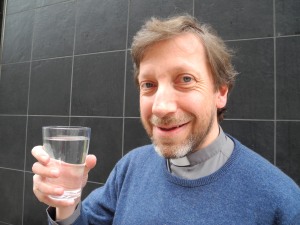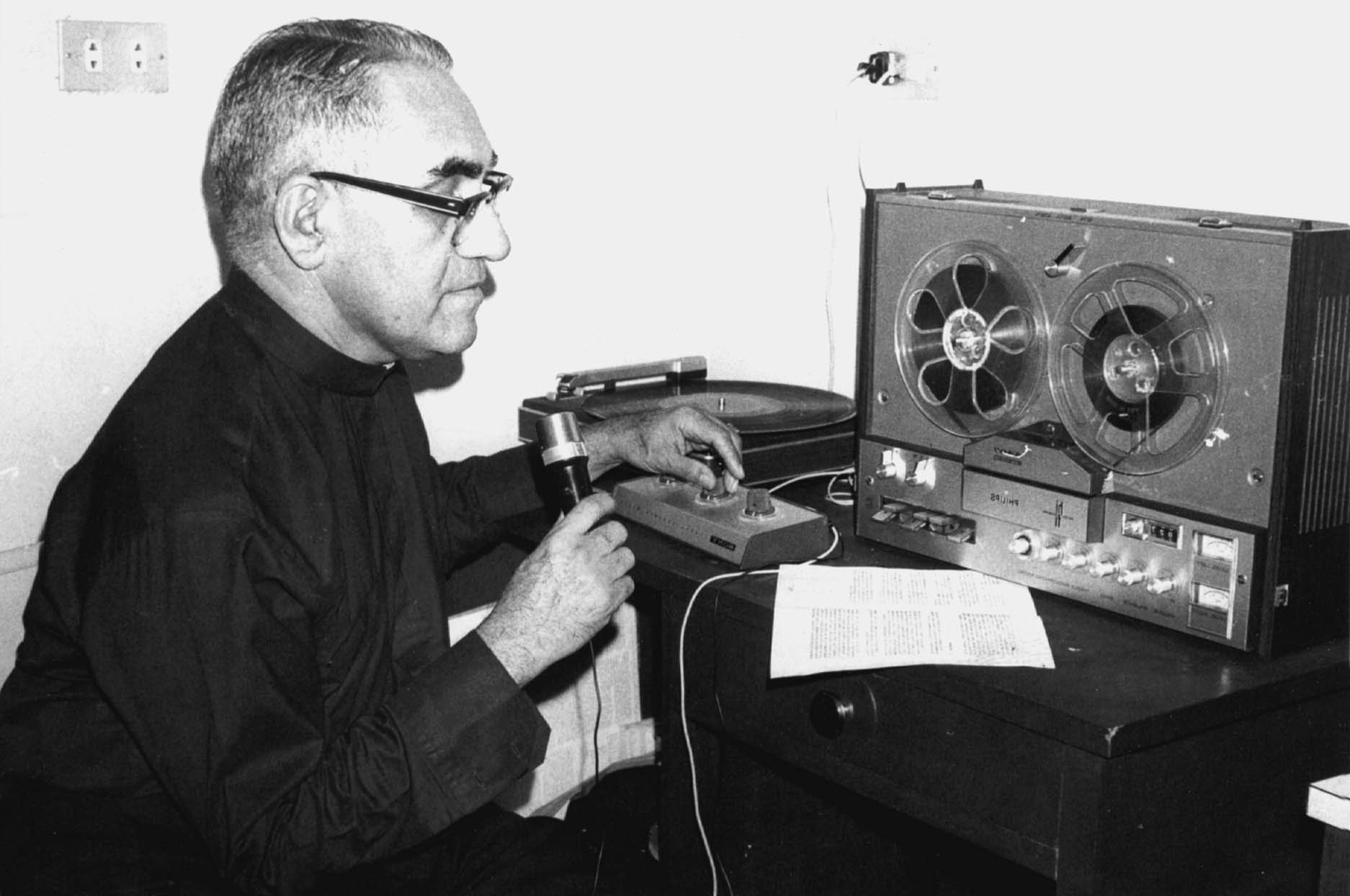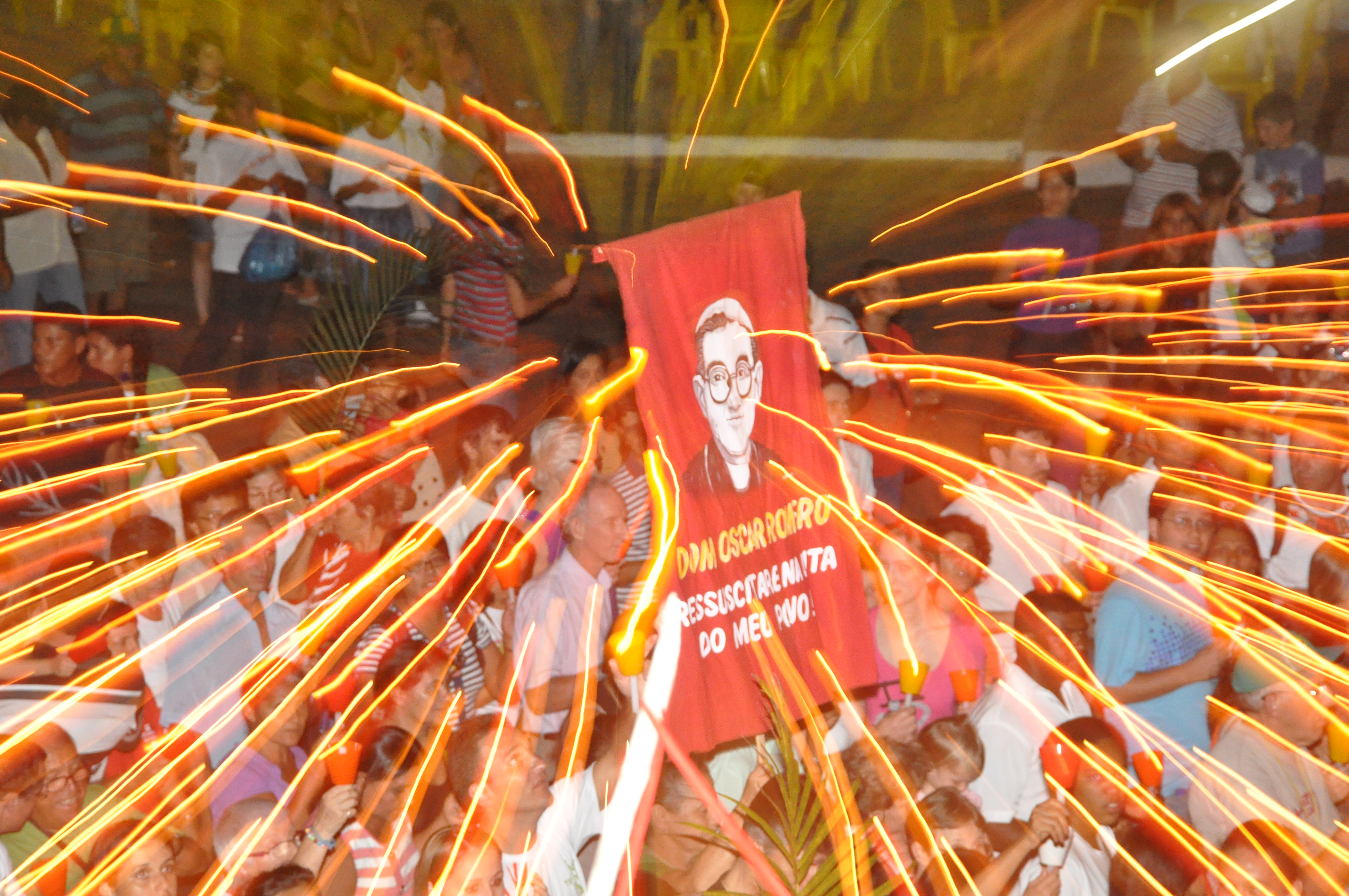How Oscar Romero is relevant in parish life today
Father Rob Esdaile is the Parish Priest of Our Lady of Lourdes in Surrey. He visited El Salvador in 1999 and shares his reflections on what Blessed Oscar Romero can teach us today.

I had the privilege of going to El Salvador early in 1999 in the company of Father John Medcalf, a fellow diocesan priest (who had himself worked in both El Salvador and Nicaragua). John had been invited to observe the presidential elections and thought it would do me good to go along.
Even 19 years after the murder of El Monseñor and 7 years after the end of El Salvador’s Civil War, the wounds caused by the violence he denounced lay just below the surface. My visit was punctuated by encounters with the bereaved, with witnesses to atrocity, and with places stained still with memories of blood.
But I also visited the hospital chapel where Romero died saying Mass and the little bungalow next door where he lived in utter simplicity. And I prayed at his tomb in the Cathedral of San Salvador, where it became apparent that already the people understood that he was their saint – San Romero.
Find prayers and reflections to give thanks for Blessed Oscar Romero’s life
As I reflect on the story of the Archbishop 35 years after his Martyrdom in my comfortable, wealthy, beautiful, non-violent suburban London parish, three things strike me.
Bursting the bubble
Firstly, I note how much we in these islands live in a bubble, protected from the reality of the lives of the two-thirds world; and how within that bubble other little bubbles have been built (physically – suburbs like my own – and mentally, as well) to protect us from the struggles of our own poorer neighbours.

We do not see and rarely want to know about the uncomfortable consequences of our consumerism and our privatised prosperity. Yet Romero burst the bubbles of ignorance and indifference week by week at Sunday Mass, reading out the list of names of those murdered or abused; broadcasting that week’s atrocities on the church’s radio station. He named the nameless, told stories about the unheard, gave public memory to the un-noticed. He burst, too, from within, his own bubble of privilege and access to the elite. That, surely, is the job of Christian disciples today.
Read how CAFOD supported Romero’s radio station
Simplicity
Secondly, there is the simplicity of his own room at the hospital campus where he lived and died. Four decades ago Romero was already living the witness to which Pope Francis invites us all (and which he lives himself in the Casa Santa Marta in the Vatican) – a joyful missionary discipleship devoted to the poor. Unless our following of Christ leads us to live more simply and reverently (and with more joy!) than our neighbours, what really have we to say to the culture of today?
Find out about the Live Simply award for Catholic parishes
Casting out fear
Thirdly, there is the question of the purpose of the Beatification in San Salvador which took place on Saturday 23 May. At one level it was superfluous.

The people have already canonised their saint. Their gut instinct – and the action of the Spirit – already knows the reality and enduring worth both of his death and his own rising again (as he said) in the Salvadorian people.
It is the institutional Church at times which has to play catch-up – and face the fact that some of its own apparatchiks played Devil’s Advocate against Romero all too willingly (during his life, as since his death). Such opposition was, I suppose motivated more by fear (of disorder, of Marxism, of change, or whatever) than malice.
But, thank God, Romero was not a fearful man, and his Beatification teaches us once more that perfect love casts out fear.
Find resources to celebrate the beatification of Oscar Romero
Reblogged this on CAFOD Arundel & Brighton's Blog and commented:
Fr Rob Esdaile, Parish Priest of Thames Ditton wrote this for CAFOD’s blog. It’s about Oscar Romero and is well worth a read…